Sajjan
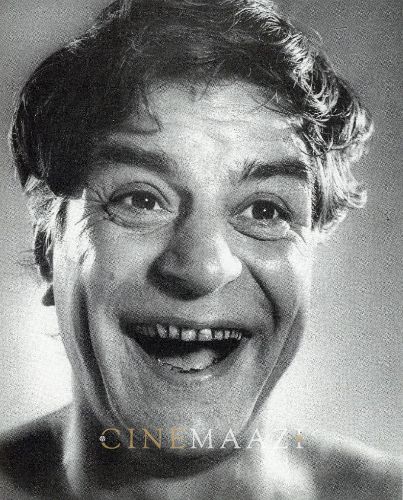
Subscribe to read full article
This section is for paid subscribers only. Our subscription is only $37/- for one full year.
You get unlimited access to all paid section and features on the website with this subscription.
Not ready for a full subscription?
You can access this article for $2 , and have it saved to your account for one year.
- Real Name: Sajjan Lal Purohit
- Born: 15 January 1921 (Jaipur)
- Died: 17 May 2000 (Mumbai)
- Primary Cinema: Hindi
- Spouse: Neeloo
Born in a middle-class family in Jaipur on 15 January 1921, Sajjan Purohit was the youngest in a family of three brothers and one sister. One of his brothers was a Congress worker. The young Sajjan, however, had his heart set on a career in films. He was twenty years old when he graduated from Jaswant College in Jodhpur. Apart from being a gifted student, he was also a good wrestler and played football and volleyball in college. As a college student, Sajjan often won prizes for his short stories and was a regular contributor to his college magazine.
In 1941, following his graduation, Sajjan left Jodhpur to join the Law College in Calcutta. He left his wife Neeloo behind, hoping to find a career in films in Calcutta. In the city, he met the veteran producer-director S.F. Hasnain, who recognized his potential and offered him a job. Sajjan refused the offer and instead secured a job as a clerk in an insurance company. Working for a monthly remuneration of Rs. 100, he worked in the evening after attending his law classes in the morning. He started dabbling in cinema, working as an extra in S.F. Hasnain’s film Masoom (1941).
Once he had saved some money in Calcutta, Sajjan moved to Bombay in 1942, still looking to find work in films. In the same year, he also appeared in Fashion (1943), in which he did a small scene with the actor Chandramohan. When Sajjan approached Prithviraj Kapoor and asked for help, Kapoor advised him to keep auditioning in the studios. Sometime later, Sajjan joined Kidar Sharma as an unpaid assistant. At the time, Raj Kapoor was also assisting Kidar Sharma, and the two thus had a chance to work together. By then, Sajjan was in dire need of money, and when he asked to be paid for his work, Kidar Sharma found him a job as a telephone operator. Sustaining himself for a while working at odd jobs, Sajjan finally decided to join Prithvi Theatre as an unpaid artiste. Impressed with his unwavering dedication, Prithviraj Kapoor finally decided to put him on the payroll. Sajjan proved his mettle at Prithvi Theatre, doing excellent work on stage, particularly in the play Deewar, in which he played Jinnah. While he stunned critics and audiences alike, the filmmaker V. Shantaram knew that he had spotted an actor of great potential. He offered Sajjan the leading role in the film Apna Desh (1949). Unfortunately, one of the conditions Shantaram posed was for Sajjan to leave the theatre, and the actor refused.
As Sajjan’s colleagues from Prithvi Theatre, Raj Kapoor, Kamal Kapoor and Prem Nath among them, started making screen careers, Sajjan also took up small assignments in films like Muqaddar (1950). His decision to not sever ties with Prithvi Theatre demonstrated his dedication to his craft, and he soon got a number of contracts, the most important among them his role in M. Sadiq’s Saiyan (1951). Saiyan was the Indian remake of the Gregory Peck starrer Duel in the Sun (1946), and showed Sajjan at his best in the classic role of Raj, the bad boy opposite Madhubala, a role which established him amongst the highest rank of stars at the time.
Soon after, he appeared with Shashikala in the film Girls’ School (1949), directed by Amiya Chakravarty. He also played the male lead in Dhanyawad (1948) opposite Hansa Wadkar. In Gyan Mukherjee’s Sangram (1950), Sajjan played Nalini Jaywant’s father and her lover in Muqaddar (1950). He worked with the actress Nutan for the first time in Hum Log (1951), written and directed by Zia Sarhadi. Rising to greater heights with every year, Sajjan appeared alongside Nargis in Sheesha (1952). He acted in a few other films like Kashmir (1951), Rail Ka Dibba (1953) and Malkin (1953) before he gave up some assignments in Bombay to act in Gemini’s Do Dulhe (1955) in Madras. The same year also saw the release of Ghar Ghar Me Diwali (1955) under the banner of Minerva Movietone, in which Sajjan played an important role. Sadly, both these films flopped, effectively ending Sajjan’s career as a leading man.
Undeterred, Sajjan permanently switched to playing character roles to perfection in films like Asit Sen’s Parivar (1956), Chalti Ka Nam Gadi (1958), Kabuliwala (1961), Bees Saal Baad (1962), Rustom Sohrab (1963), April Fool (1964), Door Gagan Ki Chaav Men (1964), Adhi Raat Ke Baad (1965), Farz (1967), Talash (1969), Patanga (1971), Raja Jani (1972), Chhupa Rustam (1973), Immaan Dharam (1977), Raksha (1981) and Shatru (1986).
After working in more than 140 films, Sajjan worked on the television serial Vikram Aur Betaal (1985-88), directed by Ramanand Sagar. He played the titular role of Betaal on the show. The accomplished film and stage thespian passed away on 17 May 2000 in Mumbai, leaving behind an impressive legacy.
-
Filmography (140)
SortRole
-
Muthi Bhar Zameen 1996
-

Khoon Aur Sazaa 1985
-
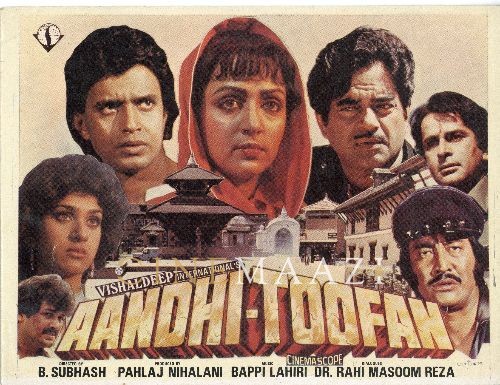
Aandhi Toofan 1985
-

Do Dilon Ki Dastaan 1985
-

Coolie 1983
-

Log Kya Kahenge 1982
-

Patthar Ki Lakeer 1982
-
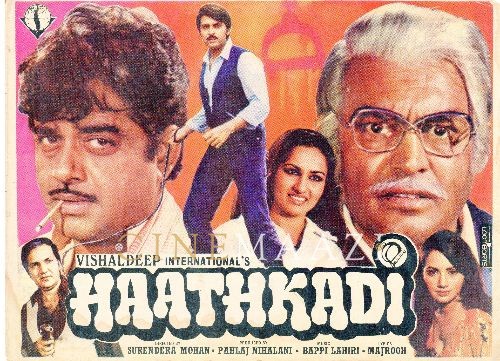
Haathkadi 1982
-
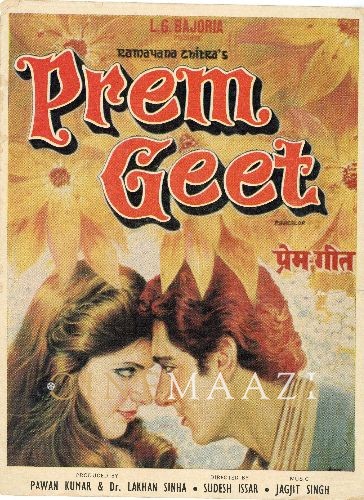
Prem Geet 1981
-

Kaalia 1981
-
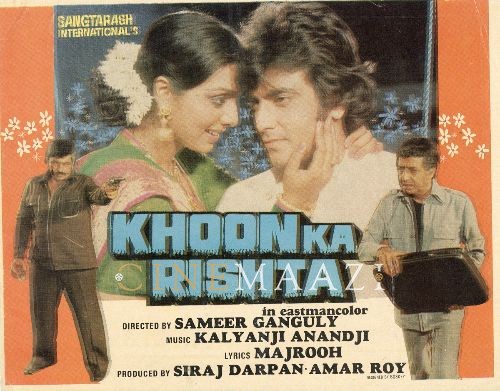
Khoon Ka Rishta 1981
-








.jpg)



